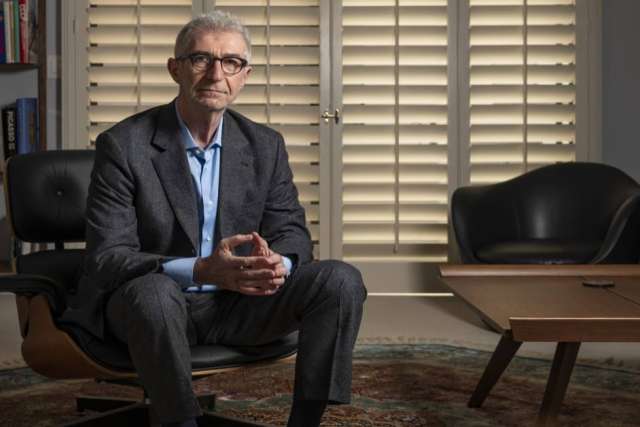As football fans prepare to tune into the NFL playoffs this weekend, many are still thinking about Buffalo Bills safety Damar Hamlin, who continues to recover after collapsing from cardiac arrest, Jan. 2, during a televised Monday Night Football game against the Cincinnati Bengals.
While the shock of that moment was unsettling, fans have overwhelmingly responded with unity and hope, flooding social media with well wishes and contributing more than $8.7 million to a toy drive fundraiser Hamlin created in 2020.
As Hamlin’s condition has improved – and as he began documenting his road to recovery on social media and with the announcement of his release from the hospital on Jan. 11 – the nation’s collective hope soared.
The initial horror fans experienced has given way to a feeling of connection and common humanity, says Emanuel Maidenberg, PhD, clinical professor of psychiatry and biobehavioral sciences at the David Geffen School of Medicine at UCLA.
“The initial reaction I think most of us have is fear, since it’s such a scary thing to see. People also became emotional very quickly, which was a different wave of something warm, connecting and unifying,” Maidenberg says.
“Hopefully, this experience of unity will serve as a reminder that, as human beings, we are similar and vulnerable independent of the ‘team’ or group we like to identify with.”

Accepting your feelings
Though witnessing the incident may have inspired fear, vulnerability or trauma, the first step to dealing with these feelings is to approach them with acceptance and curiosity, Dr. Maidenberg says. Doing so allows us to normalize our responses and understand there’s good reason for them, he says.
Try not to avoid your feelings — or to avoid watching, and enjoying, football, especially if it’s something you love.
“Avoidance generally is not a helpful way to cope with these kinds of circumstances,” Dr. Maidenberg says. “It’s better to embrace it and accept it and to experience whatever feelings are associated with it. That’s what allows for it to become, at some point in the near future, just another memory.”
Acknowledge the unity
Focusing on the unity among players and fans can remind us of our shared human experience, he says.
“The feelings of concern, closeness and connectedness that we experienced during the initial moments of this horrific event shouldn’t go unnoticed,” Dr. Maidenberg says.
“Hopefully, this experience of unity will serve as a reminder that, as human beings, we are similar and vulnerable independent of the ‘team’ or group we like to identify with.”
DR. EMANUEL MAIDENBERG
Then there has been the outpouring of support since the event. The Cincinnati Bengals’ Paycor Stadium, where the Jan. 2 game was being played, was illuminated in blue light on Jan. 3 in honor of the Buffalo Bills. All 32 NFL teams changed their Twitter profile photos to an image of Hamlin’s jersey number, 3, with the words, “Pray for Damar.”
Last weekend, teams and fans throughout the league paid tribute to Hamlin with moments of reflection and prayer before games, T-shirts and signs showing support, and on-field demonstrations of friendship and community.
These responses, Maidenberg says, “remind us about the possibility to be connected or united about something, which can be so hard to come by these days.”




